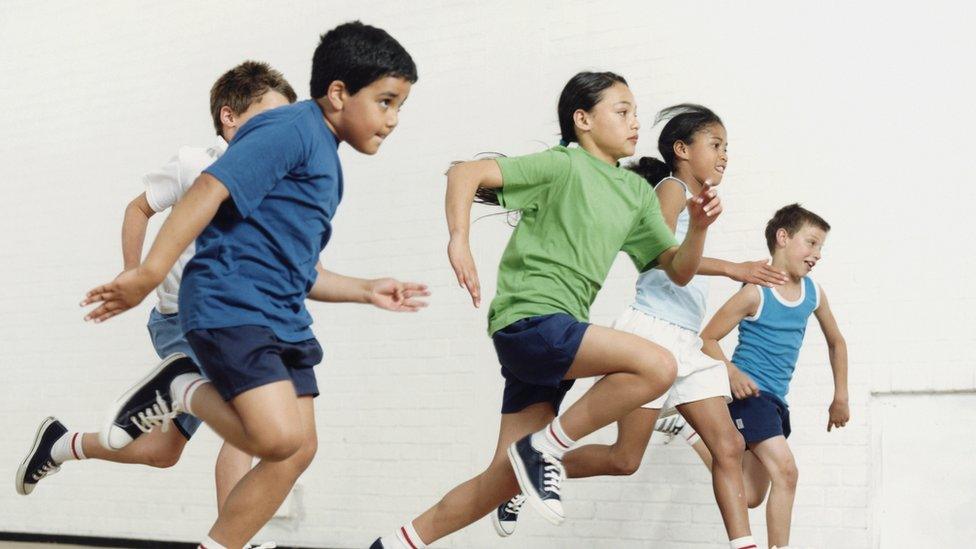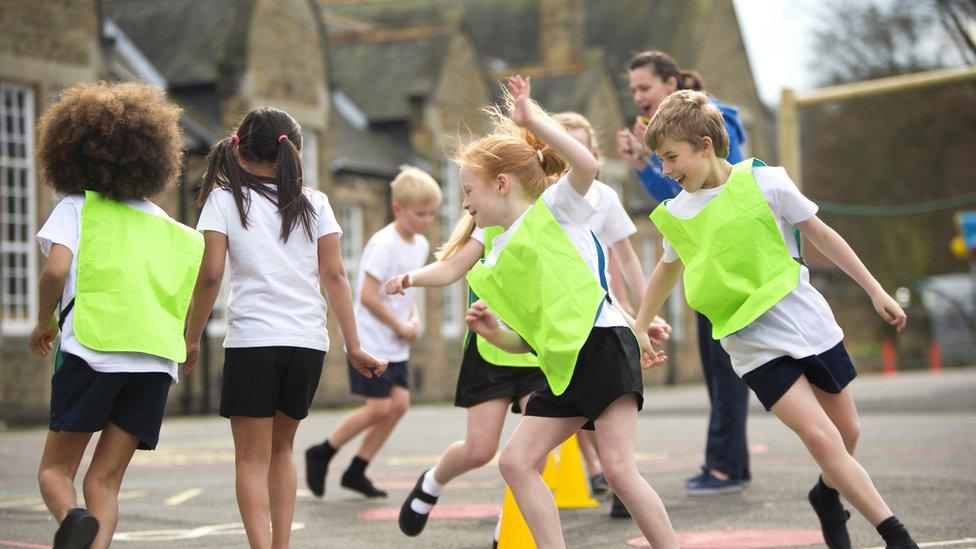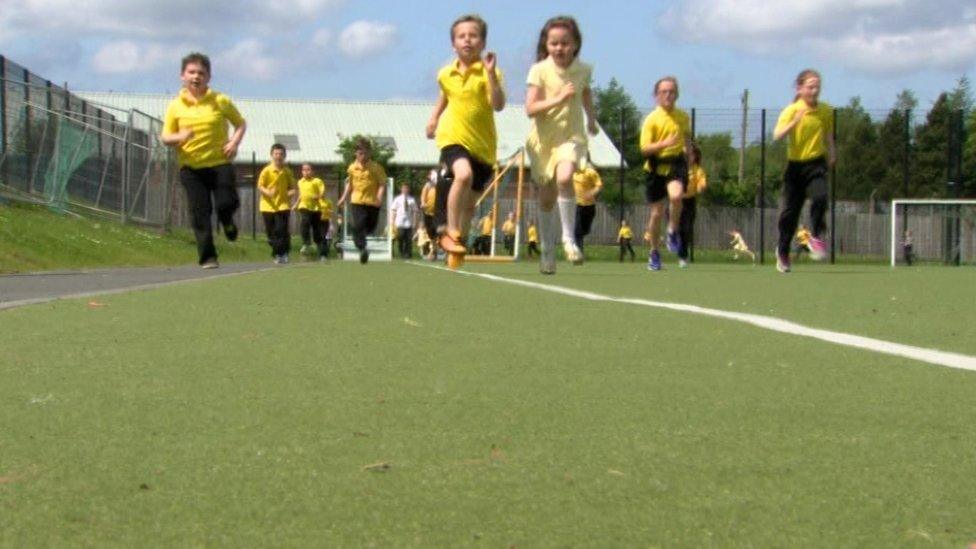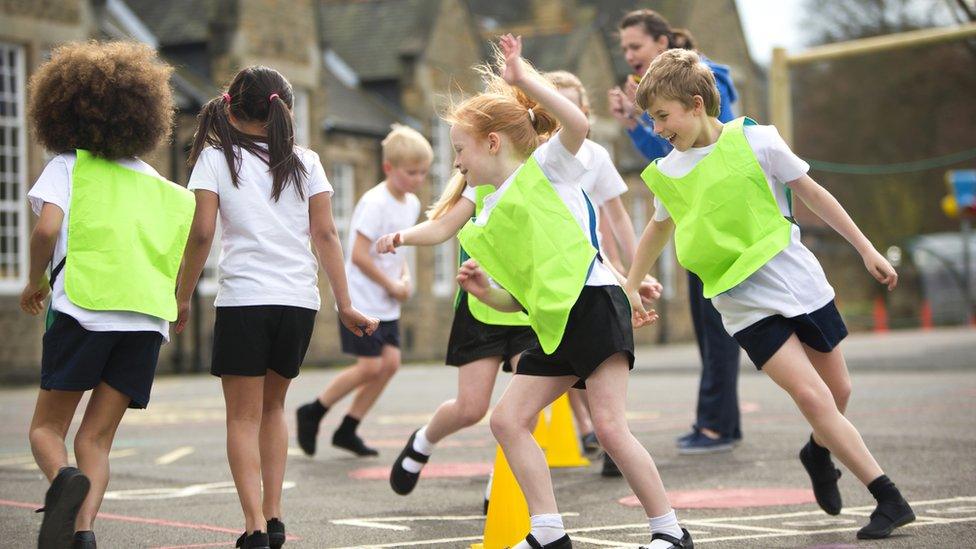NI education: Daily Mile boosts pupil fitness but not learning, says study
- Published

Getting schoolchildren to walk or run a mile every day increases their physical fitness, but there is little evidence it improves academic performance.
That is according to just-published research from Ulster University (UU) funded by the Education Authority (EA).
Many schools in Northern Ireland take part in the daily mile, which involves children taking a 15-minute break from class to do physical activity.
It was originally introduced in Scotland a decade ago.
The initiative is in addition to normal physical education (PE) lessons.
Pupils are meant to do a 15-minute jog, run, brisk walk or wheel outside with their teacher without having to change out of their school uniforms.
The low level of physical activity among children and young people in Northern Ireland has previously been described as a major health concern by the Northern Ireland Assembly.
The UU research looked at the effect of the daily mile on children's physical activity, physical health, mental health, wellbeing, academic performance and things like their thinking, reasoning and problem solving.
Its findings are based on 13 detailed studies into the activity carried out between 2018 and 2022 - mostly in the UK but also in Italy, Belgium and Holland.
The UU review of those studies found that taking part in the daily mile did increase children's physical activity and fitness in both the short and long-term.

The Daily Mile is in additional regular physical education classes
There was also some evidence that it improved children's wellbeing and self-esteem.
However, the effects were greater in children who had lower self-worth and self-esteem to begin with and were only evident when the daily mile was consistently held in schools for a prolonged period of time.
If children took part in the daily mile over a long period, there was also some evidence that it could improve "cognitive function" - things like thinking, reasoning and problem solving.
'Improved short-term mental health'
But the researchers said that "whilst initial results are promising, the long-term benefits are unclear" and more studies were needed into how the daily mile might benefit thinking skills.
There was also little evidence so far that the activity improved children's academic performance.
Dr Gavin Breslin from UU, who led the review into the daily mile, said it "is working for physical activity and physical fitness".
"We didn't find convincing evidence that it improves mental health in the long-term," he told BBC News NI.
"But we did find it improved mental health in the short-term.
"We didn't find sufficient evidence for a change in academic performance, like school grades."
'Feel a wee bit better'
But Dr Breslin said that as the daily mile had only been in existence for a relatively short time, more research needed to be carried out into its potential benefits.
"We know that exercise, physical activity and running is good for you - this review is about the daily mile specifically," he said.
"Yes, the daily mile is good for long-term participation, increased physical activity and fitness, but the jury is still out essentially for some of the other components."
Pupils in Mount St Michael's Primary School in Randalstown, County Antrim, have been taking part in the daily mile for a number of years.
Its vice-principal Philip Lavery told BBC News NI they found that as well as physical benefits it could put pupils and staff "in a relaxed frame of mind".
"You do tend to feel a wee bit better about yourself," he said.
"When they're out they also take a bit of time to have a chat and there's something positive about that experience.
"There is a social element as well as a physical element and I think the social element has a positive impact on their feelings."
The Ulster University research has just been published in the Plos One journal, external.
Related topics
- Published28 May 2016

- Published28 April 2022

- Published4 June 2021
